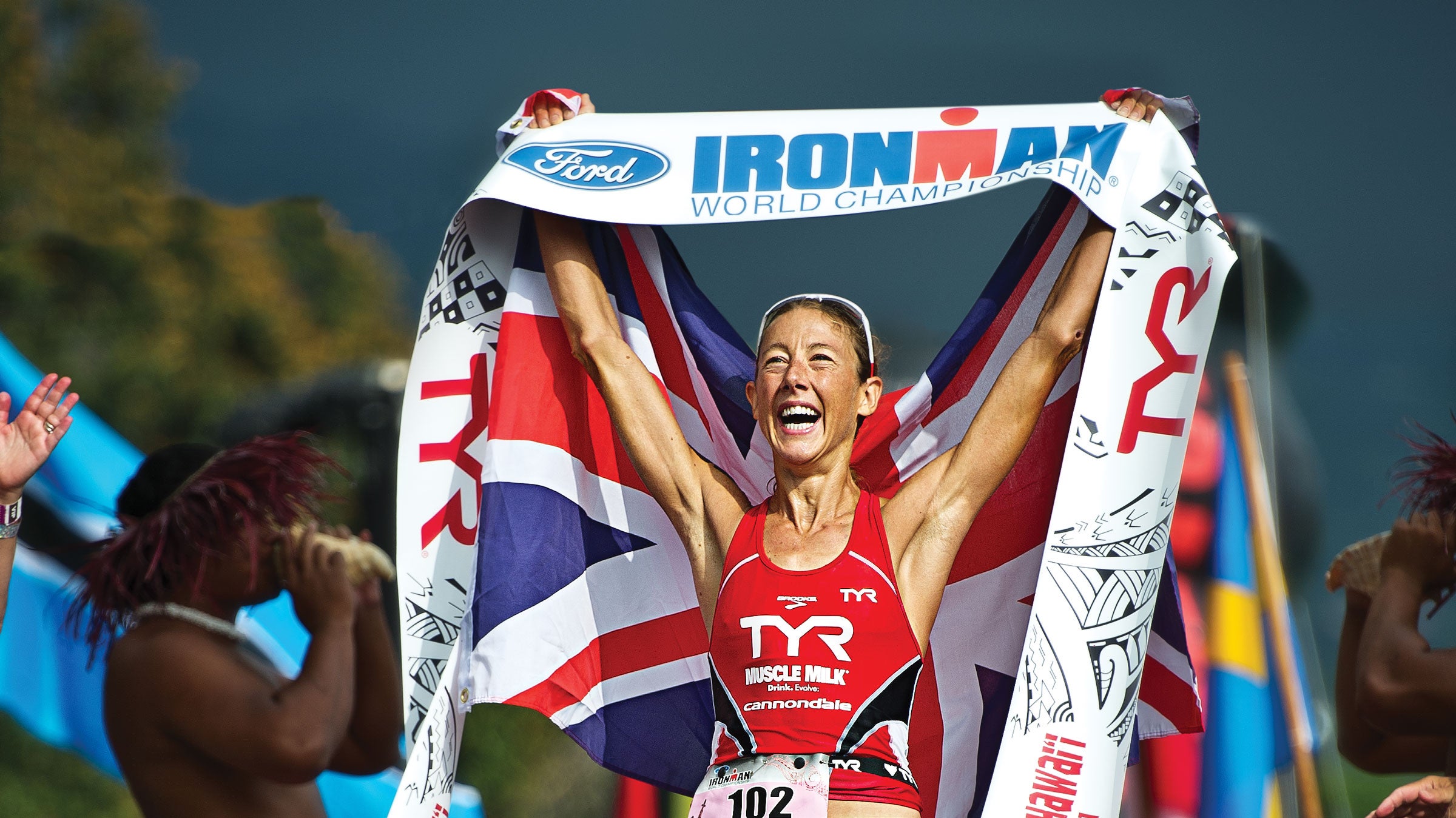Recalled: Chrissie Wellington’s Final Kona Win

Chrissie crosses the line for her fourth Ironman world title. (Photo: Nils Nilsen)
Looking back on Chrissie Wellington’s career, it would be easy to assume that her path to legendary status was without its challenges. After all, Wellington never lost an iron-distance race she entered. Though she went 13 for 13 at the 140.6-distance before retiring right in the middle of what many consider to be her prime, it was that 13th victory at the 2011 Ironman World Championship on Oct. 8 that pushed her to the limit.
Although Wellington had shattered the iron-distance record at Challenge Roth that year (in 8:18:13—a mark that still stands today), it had been two years since she had raced in Kona. The year prior (2010), she shocked the entire sport when pulled out the morning of the Ironman World Championship—citing an illness that hit her the day before the race. Australia’s Mirinda Carfrae went on to win that year in impressive fashion, establishing a then-run course record to beat out Caroline Steffen (SUI) and Julie Dibens (GBR).
Had Carfrae cracked the code that would finally challenge Wellington? Would her run prove to be too much for the steady Wellington? The lead-up to the 2011 Kona race was highlighted by these questions, with everyone excited to see how the two experienced champions would match up in the latest edition of triathlon’s most iconic race. Then, Wellington’s bad Kona luck continued when she suffered a cycling crash in Boulder, less than two weeks prior to race day. Though news of her crash spread throughout the sport, many downplayed the severity of her injuries. Wellington addressed the crash on Twitter, writing that she was “…battered, bruised, and bloody. But still full of fight.” Race week shifted the narrative, when a normally bubbly Wellington was nowhere to be seen during the pre-race festivities. Was she more injured than she was letting on?

It turns out yes, she was. Unbeknownst to most athletes and triathlon fans, Wellington had suffered a pulled pectoral muscle and an infected leg as a result of the crash. She ended up in a Kona hospital during race week where she had her wounds scrubbed and redressed. Despite rumblings that Wellington could register another Kona DNS, the then three-time champion showed up on race morning looking poised to battle for the win. It was once the swim started that it became very evident that she wasn’t quite herself. Though Wellington was never a front-of-the-pack swimmer, she spent the 2.4 miles well out of range of any of the other contenders. She exited the water in over an hour, nine minutes back of the lead.
Wellington spent the entire 112 miles working her way up to the front, later explaining how she got through the discomfort. “I filled my mind with positive thoughts: ‘Awesome! The pain is bearable. Game on!’” she said after the race. “I always do that; I try to remain ‘cup half-full’ mentally and stay in the moment. Instead of wondering: ‘Will I fall apart on the run?’ I thought: ‘Just get on the bike. You’re in 22nd place. Get to 21st. Then: Get to 20th. Then: 19th.’ The discomfort was constant, but not in a constant place—it ebbed and flowed. But as I gained position, I gained in confidence.”
Once on the marathon, she continued her steady pace—fueled by the positivity that she could overcome anything. Wellington took the lead as she entered the Energy Lab, well aware that a fast-running Carfrae was somewhere behind her. Toward the final miles of the run on her way back onto the Queen K, the severity of her injuries started to catch up with her. “Everything hurt so badly,” she said. “But you can’t let your head drop for a second. Not a single second. I kept recalling the words of Rudyard Kipling: ‘Keep your head, keep your head. Fill the unforgiving minute with 60 seconds of distance run.’”

She made her way to Palani in first place with Carfrae not making up enough ground and finally felt like the victory was in her reach. But it took every ounce of strength to make it across the finish line. “I remember thinking: This is epic!” she explained. “I was scared to high-five people because I was scared that if I hit someone I’d crumble. My body was that broken.”
Wellington crossed the line in 8:55:08, turning in one of the most impressive victories in Ironman history. In January of 2012, she announced that she would be taking a break from racing before ultimately announcing her retirement in December.
“As an athlete, I sought the perfect race,” she wrote. “That race within myself where I dug to the depths mentally and physically, and that hard-fought race with my competitors. The Ironman World Championships in 2011 was the icing on the cake for me as an athlete. It was my ‘perfect race’ and it ‘completed’ me.”